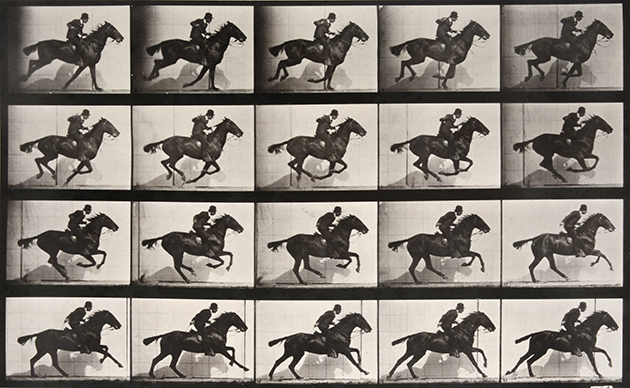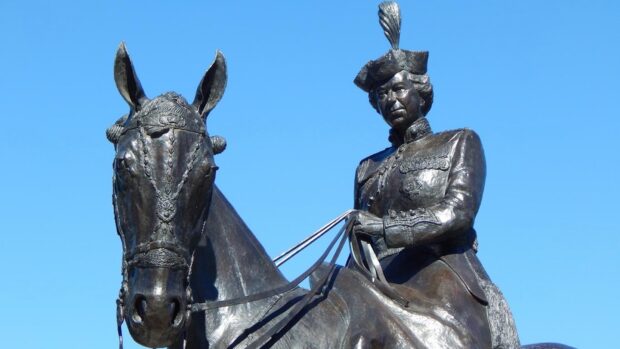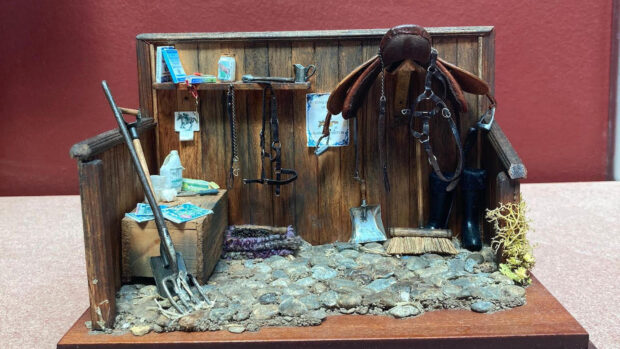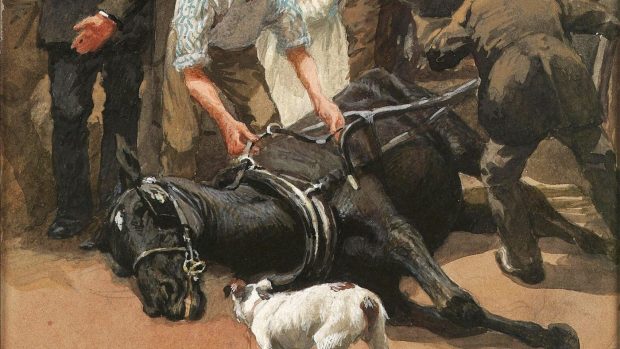A new exhibition of work by photographer Eadweard Muybridge at London gallery Beetles + Huxley, shows the photos that were used in the mid-19th century to prove that horses become airborne in gallop
As you break into a gallop, it’s unlikely that you’re focusing on the motion of your horse’s hooves — more likely you’re looking for the next jump, worrying about any uneven terrain, or alternatively wondering how you’re going to stop.
But in the mid 19th-century there was still some questions surrounding a horse’s gait. And so in 1872, the former Governor of California, Leland Stanford, hired photographer Eadweard Muybridge to photograph his horse galloping, to settle the debate about whether all four of the animal’s hooves were lifted off the ground at the same time.
In order to photograph the horse at speed, Eadweard engineered a system of multiple cameras with trip wire shutter releases to capture each stage of the movement — which proved conclusively, for the first time, that a galloping horse lifts all four hooves off the ground.

The exhibition at Beetles + Huxley in London (19 July-2 September) showcases 65 collotype prints made by the artist in 1887, from his influential series Animal Locomotion, which features images of animals and people captured mid-movement. Each plate in the series shows the same subject in sequential phases of one action, and his work from this time has been credited with contributing to the science of physiology and biomechanics.
Eadweard recorded varied forms of movement in a wide range of animals, mostly taken at Philadelphia zoo, from pigeons in flight to the subtleties of gait found in sloths, camels and capybaras. He also documented human subjects walking, running and descending staircases and engaging in boxing, fencing, weight lifting and wrestling.
Born in 1830 in Kingston-upon-Thames, London, Eadweard emigrated to America as a young man and worked as a bookseller. After being injured in a runaway stagecoach crash in Texas, he returned to the UK for a five-year period where it is thought he took up photography. Upon his return to America, he quickly established a successful career as a landscape photographer, producing dramatic views of both Yosemite and San Francisco.
His reputation as being an adventurous and progressive photographer led him to work as both a war and official government photographer.

Eadweard Muybridge: Animal Locomotion at Beetles + Huxley, London, runs from 19 July-2 September 2017. For more information visit beetlesandhuxley.com
For all the latest equestrian news and reports, don’t miss Horse & Hound magazine out every Thursday



